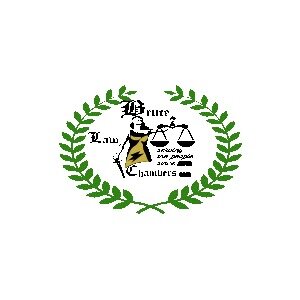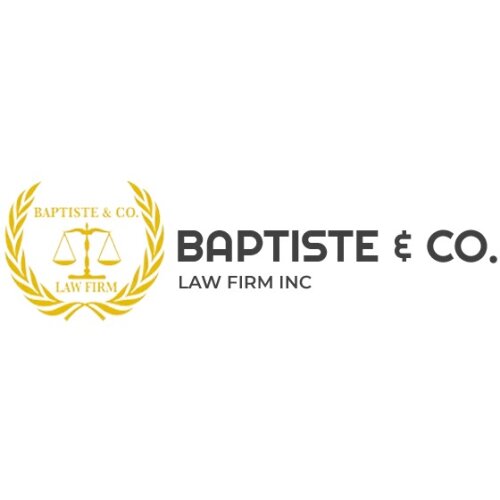Best Guardianship Lawyers in Kingstown
Share your needs with us, get contacted by law firms.
Free. Takes 2 min.
List of the best lawyers in Kingstown, Saint Vincent and the Grenadines
About Guardianship Law in Kingstown, Saint Vincent and the Grenadines
Guardianship law in Kingstown, Saint Vincent and the Grenadines is a crucial area of family law designed to protect and assist individuals who are unable to manage their own affairs. This may include minors, elderly individuals, or those with mental or physical disabilities. A guardian is appointed by the court to make decisions on behalf of the person (ward) who is incapable of doing so themselves. The guardian's responsibilities can include managing personal, financial, and healthcare decisions for the ward.
Why You May Need a Lawyer
There are several common situations where individuals might require legal assistance with guardianship matters:
1. **Establishing Guardianship:** If you're seeking to become a guardian for a minor or an incapacitated adult, you'll need to navigate the legal process of establishing guardianship, which can be complex and require legal expertise.
2. **Contesting Guardianship:** Legal advice may be necessary if you want to contest the appointment of a particular guardian or if there are disputes regarding the suitability of an appointed guardian.
3. **Changing Guardianship:** Circumstances may change, requiring a modification or termination of an existing guardianship arrangement.
4. **Understanding Duties and Responsibilities:** A lawyer can provide guidance on the specific duties and obligations involved in guardianship to ensure that a guardian is acting in the best interest of their ward.
5. **Handling Financial Matters:** If guardianship involves managing substantial financial assets, legal assistance might be needed to comply with relevant laws and regulations.
Local Laws Overview
In Saint Vincent and the Grenadines, guardianship is governed by local statutes that detail the processes and requirements for appointing a guardian. Key aspects of these laws include:
- **Best Interests of the Ward:** The court's primary consideration in guardianship cases is the best interests of the ward, focusing on their welfare and protection.
- **Eligibility:** The law sets forth who may be eligible to serve as a guardian, often prioritizing family members but also allowing for other suitable individuals or institutions under certain circumstances.
- **Court Supervision:** Guardianship arrangements are subject to ongoing court supervision, requiring regular reporting and accountability from the guardian.
- **Consent and Wishes:** If possible, the preferences and wishes of the ward are taken into account when appointing or changing a guardian.
Frequently Asked Questions
What is guardianship?
Guardianship is a legal relationship where someone (the guardian) is appointed by the court to make decisions for another person (the ward) who is unable to make decisions for themselves due to age, incapacity, or disability.
Who can become a guardian?
Generally, family members are preferred candidates, but others, including close friends or legal institutions, can be appointed if found suitable by the court.
How do I apply for guardianship?
To apply for guardianship, you need to file a petition with the court detailing the need for guardianship and proposing a suitable guardian. It often requires supporting documentation and may involve a court hearing.
Does guardianship remove all rights from the ward?
No, guardianship is meant to support and protect the ward while respecting any decisions they can make. The guardian only assumes rights and responsibilities necessary to ensure the well-being of the ward.
Can a guardianship order be challenged?
Yes, guardianship orders can be contested or modified if it can be demonstrated that changes are necessary for the best interest of the ward.
What responsibilities does a guardian have?
A guardian is responsible for making healthcare, financial, and personal decisions on behalf of the ward, always prioritizing their best interests and welfare.
How long does guardianship last?
This depends on the circumstances; guardianship may be temporary or permanent. It can be reassessed by the court if the ward's situation changes.
Can guardianship arrangements be terminated?
Yes, guardianship can be terminated by the court if it's deemed no longer necessary or if the ward regains capacity to manage their own affairs.
What is the role of the court in guardianship cases?
The court oversees the guardianship appointment process, supervises the guardian's actions, and ensures the guardian acts in the ward's best interests.
Are there any costs involved in establishing guardianship?
While there may be court fees and legal costs involved in establishing guardianship, these can vary based on the specifics of the case.
Additional Resources
- **Legal Aid Office:** Provides assistance to individuals in need of legal support, especially those unable to afford private legal fees.
- **Family Court of Saint Vincent and the Grenadines:** Handles guardianship cases and provides necessary information and forms needed for guardianship proceedings.
- **Ministry of Legal Affairs:** Offers guidance and resources regarding family law matters, including guardianship.
Next Steps
If you need legal assistance regarding guardianship in Kingstown, Saint Vincent and the Grenadines, consider the following steps:
1. **Consultation:** Schedule a consultation with a qualified family law attorney to discuss your situation and obtain legal advice tailored to your needs.
2. **Gather Documentation:** Prepare all necessary documents and information relevant to the guardianship case, such as medical records, financial information, and personal testimonies.
3. **File a Petition:** With the help of your attorney, file a petition for guardianship with the local court, ensuring compliance with all procedural and legal requirements.
4. **Prepare for Hearings:** Work with your lawyer to prepare for any court hearings, gathering evidence and witnesses as necessary to support your case.
5. **Follow Up:** Stay actively involved throughout the legal process, maintaining communication with your attorney and complying with all court orders and requests.
Lawzana helps you find the best lawyers and law firms in Kingstown through a curated and pre-screened list of qualified legal professionals. Our platform offers rankings and detailed profiles of attorneys and law firms, allowing you to compare based on practice areas, including Guardianship, experience, and client feedback.
Each profile includes a description of the firm's areas of practice, client reviews, team members and partners, year of establishment, spoken languages, office locations, contact information, social media presence, and any published articles or resources. Most firms on our platform speak English and are experienced in both local and international legal matters.
Get a quote from top-rated law firms in Kingstown, Saint Vincent and the Grenadines — quickly, securely, and without unnecessary hassle.
Disclaimer:
The information provided on this page is for general informational purposes only and does not constitute legal advice. While we strive to ensure the accuracy and relevance of the content, legal information may change over time, and interpretations of the law can vary. You should always consult with a qualified legal professional for advice specific to your situation.
We disclaim all liability for actions taken or not taken based on the content of this page. If you believe any information is incorrect or outdated, please contact us, and we will review and update it where appropriate.












